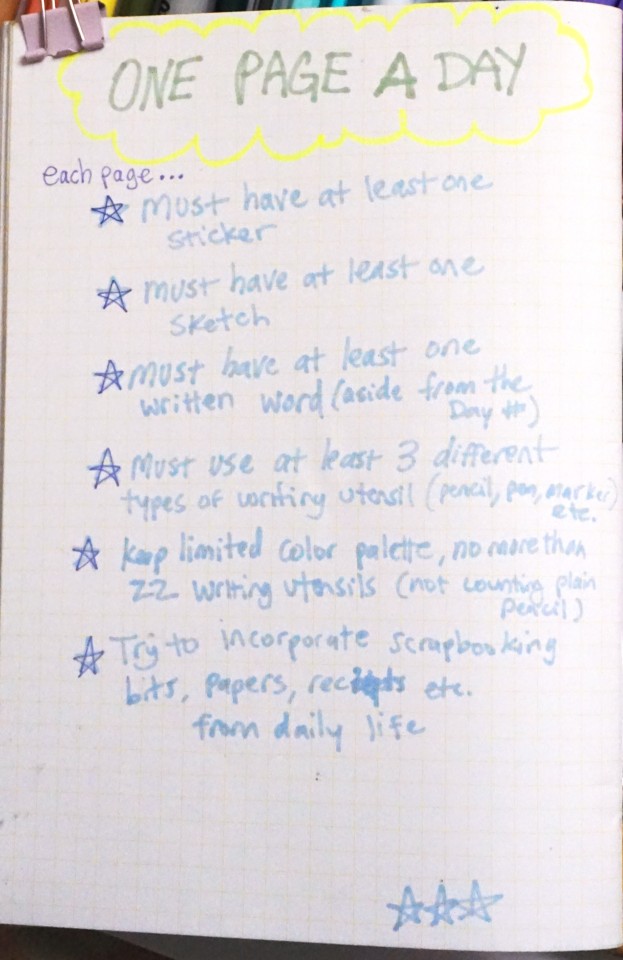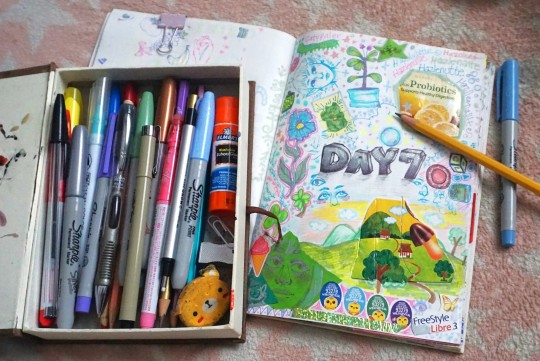#in the food industry
Explore tagged Tumblr posts
Text


Did you know that there is a Toaster Museum????
#things organized neatly#present and correct#design#museum#toast#toaster#industrial design#chrome#wow#neat#love#food#Germany#archives#bread#history
7K notes
·
View notes
Text
Federal regulators on Tuesday [April 23, 2024] enacted a nationwide ban on new noncompete agreements, which keep millions of Americans — from minimum-wage earners to CEOs — from switching jobs within their industries.
The Federal Trade Commission on Tuesday afternoon voted 3-to-2 to approve the new rule, which will ban noncompetes for all workers when the regulations take effect in 120 days [So, the ban starts in early September, 2024!]. For senior executives, existing noncompetes can remain in force. For all other employees, existing noncompetes are not enforceable.
[That's right: if you're currently under a noncompete agreement, it's completely invalid as of September 2024! You're free!!]
The antitrust and consumer protection agency heard from thousands of people who said they had been harmed by noncompetes, illustrating how the agreements are "robbing people of their economic liberty," FTC Chair Lina Khan said.
The FTC commissioners voted along party lines, with its two Republicans arguing the agency lacked the jurisdiction to enact the rule and that such moves should be made in Congress...
Why it matters
The new rule could impact tens of millions of workers, said Heidi Shierholz, a labor economist and president of the Economic Policy Institute, a left-leaning think tank.
"For nonunion workers, the only leverage they have is their ability to quit their job," Shierholz told CBS MoneyWatch. "Noncompetes don't just stop you from taking a job — they stop you from starting your own business."
Since proposing the new rule, the FTC has received more than 26,000 public comments on the regulations. The final rule adopted "would generally prevent most employers from using noncompete clauses," the FTC said in a statement.
The agency's action comes more than two years after President Biden directed the agency to "curtail the unfair use" of noncompetes, under which employees effectively sign away future work opportunities in their industry as a condition of keeping their current job. The president's executive order urged the FTC to target such labor restrictions and others that improperly constrain employees from seeking work.
"The freedom to change jobs is core to economic liberty and to a competitive, thriving economy," Khan said in a statement making the case for axing noncompetes. "Noncompetes block workers from freely switching jobs, depriving them of higher wages and better working conditions, and depriving businesses of a talent pool that they need to build and expand."
Real-life consequences
In laying out its rationale for banishing noncompetes from the labor landscape, the FTC offered real-life examples of how the agreements can hurt workers.
In one case, a single father earned about $11 an hour as a security guard for a Florida firm, but resigned a few weeks after taking the job when his child care fell through. Months later, he took a job as a security guard at a bank, making nearly $15 an hour. But the bank terminated his employment after receiving a letter from the man's prior employer stating he had signed a two-year noncompete.
In another example, a factory manager at a textile company saw his paycheck dry up after the 2008 financial crisis. A rival textile company offered him a better job and a big raise, but his noncompete blocked him from taking it, according to the FTC. A subsequent legal battle took three years, wiping out his savings.
-via CBS Moneywatch, April 24, 2024
--
Note:
A lot of people think that noncompete agreements are only a white-collar issue, but they absolutely affect blue-collar workers too, as you can see from the security guard anecdote.
In fact, one in six food and service workers are bound by noncompete agreements. That's right - one in six food workers can't leave Burger King to work for Wendy's [hypothetical example], in the name of "trade secrets." (x, x, x)
Noncompete agreements also restrict workers in industries from tech and video games to neighborhood yoga studios. "The White House estimates that tens of millions of workers are subject to noncompete agreements, even in states like California where they're banned." (x, x, x)
The FTC estimates that the ban will lead to "the creation of 8,500 new businesses annually, an average annual pay increase of $524 for workers, lower health care costs, and as many as 29,000 more patents each year for the next decade." (x)
Clearer explanation of noncompete agreements below the cut.
Noncompete agreements can restrict workers from leaving for a better job or starting their own business.
Noncompetes often effectively coerce workers into staying in jobs they want to leave, and even force them to leave a profession or relocate.
Noncompetes can prevent workers from accepting higher-paying jobs, and even curtail the pay of workers not subject to them directly.
Of the more than 26,000 comments received by the FTC, more than 25,000 supported banning noncompetes.
#seriously cannot emphasize enough that this is going to be a huge deal for so so many people#it could seriously drag up wages in food and service industries in particular#especially in the long run#and also massively reshape tech and video game industries#do you have any idea how many game devs are legally not allowed to start their own studios? probably most of them#and that's about to change for the better!!#ftc#noncompete#united states#us politics#business#business news#biden administration#voting matters#democrats#federal trade commission#video game industry#game devs#fast food#fast food workers#labor#labor rights#workers rights#blue collar#service workers#good news#hope
3K notes
·
View notes
Text
The global food economy is massively inefficient. The need for standardized products means tons of edible food are destroyed or left to rot. This is one reason more than one-third of the global food supply is wasted or lost; for the U.S., the figure is closer to one-half. The logic of global trade results in massive quantities of identical products being simultaneously imported and exported—a needless waste of fossil fuels and an enormous addition to greenhouse gas emissions. In a typical year, for example, the U.S. imports more than 400,000 tons of potatoes and 1 million tons of beef while exporting almost the same tonnage. The same is true of many other food commodities and countries. The same logic leads to shipping foods worldwide simply to reduce labor costs for processing. Shrimp harvested off the coast of Scotland, for example, are shipped 6,000 miles to Thailand to be peeled, then shipped 6,000 miles back to the UK to be sold to consumers. The supposed efficiency of monocultural production is based on output per unit of labor, which is maximized by replacing jobs with chemical- and energy-intensive technology. Measured by output per acre, however—a far more relevant metric—smaller-scale farms are typically 8 to 20 times more productive.
5 November 2024
1K notes
·
View notes
Text
Nearly a dozen children were working shifts cleaning meat processing equipment used at an Iowa pork plant’s so-called kill floor over a four-year period, the US Department of Labor announced.
Eleven children were using corrosive chemicals to clean as well as perilous “head splitters, jaw pullers, bandsaws, neck clippers and other equipment” at a Seaboard Triumph Foods pork processing plant in Sioux City, according to officials. This is the second time federal investigators have found children working at that particular Sioux City meat processing plant.
The most recent settlement comes with Qvest LLC, an Oklahoma-based cleaning company hired by Seaboard from 2019 to 2023. The company was fined $171,919 for violating federal law.
In September 2023, Seaboard hired a new cleaning contractor: Fayette Janitorial Services, headquartered in Tennessee. Investigators found Fayette hired 24 children to work overnight shifts – some as young as 13 and carrying glittery school backpacks – including some of the same minors who were employed by Qvest, the previous cleaning company. In May, Fayette was fined $649,304.
“These findings illustrate Seaboard Triumph Foods’ history of children working illegally in their Sioux City facility since at least September 2019,” said wage and hour midwest regional administrator Michael Lazzeri. “Despite changing sanitation contractors, children continued to work in dangerous occupations at this facility.”
The federal investigation comes after a 2023 New York Times report on migrant child exploitation, in which the paper documented children working dangerous jobs and overnight hours.
Children who arrive at the US’s southern border alone often stay in the country for years before their cases are adjudicated. While they wait, they live with sponsors. As of 2023, only one-third of migrant children went to live with their parents, a sea change from a decade ago. That can leave children vulnerable to exploitation or trafficking.
#oh upton sinclair we’re really in it still#the slaughterhouse/meatpacking industry continues to be the actual devil#food systems#immigration#lines on a map#labor rights#news#my posts
783 notes
·
View notes
Text
An American cattle rancher exposing why the beef sold in american grocery stores doesn’t look like natural beef.
The gasses pumped into American grocery store meat are a mixture of carbon dioxide, oxygen, and carbon monoxide. Carbon monoxide binds with myoglobin in the meat, which keeps the meat looking bright red for weeks.
Other countries have banned using carbon monoxide on meat. 🤔
#pay attention#educate yourselves#educate yourself#reeducate yourselves#knowledge is power#reeducate yourself#think about it#think for yourselves#think for yourself#do your homework#do research#do some research#do your own research#ask yourself questions#question everything#food supply#meat#toxic food#poison#government corruption#evil lives here#news#truth be told#meat industry
294 notes
·
View notes
Text


criminisiicecream on ig
#food#ice cream#stim#sensory#satisfying#mypost#mygifs#industrial#mechanical#icecream#hands free#handsfree
282 notes
·
View notes
Text
Kate Nash on the financial reality of being a touring artist.
x
#and when you think about the scale of Harry’s shows#he’s got about 80 people he travels with from show to show#that’s food/lodging/travel expense for 80+ people#then add in everything else#it’s insane#touring industry#kate nash#music industry
100 notes
·
View notes
Text
doing some research on parapsychology as a field. in short, it's the study of how the supernatural relates to psychology, and is largely regarded as pseudoscience with only a handful of people studying it, and very very few universities will even offer a parapsych program.
so… martin, buddy, did you just google 'what degrees do people get for paranormal research' and go with the first one that popped up? you did didn't you. idiot.
#i wanna know what other jobs martin applied for and thus made up degrees for.#*applies for job as a restaurant manager* ah yes i have a degree in. food and resource economics#*applies for job at amazon* i have a bachelors in packaging dw about it (actual real degree apparently)#til bowling industry management is a real university program you can persue. i don't even need to make the joke. you get it.#tma#the magnus archives#martin blackwood#original post
346 notes
·
View notes
Text

#donald trump#food#foodie#food industry#diet#dieting#diets#keto#weight loss#overweight#gym#gym life#fitness#president trump#trump#democrats#donald j. trump#wef#social media#fox news#elon musk#dan bongino#snacks#climate crisis#environment#ridiculous#climate change#climate action#racisim#enviromentalism
88 notes
·
View notes
Text
So I remember reading that post that called Omelettes, fancy egg tacos,
Which I get, but considering most of the omelettes I have had are rolled up…
Call that
Call that
An Egg Roll
319 notes
·
View notes
Text

A cured patient is money lost
#big pharma#big health#big food#harmacy#salesman or doctor#vaccine industry#cancer#chronic illness#chronic pain
91 notes
·
View notes
Text

#Sweet Dixie Kitchen#Long Beach#Popeyes#restaurant#chicken and waffles#food industry#food#controversy
78 notes
·
View notes
Text
A key issue in understanding who feeds the world is the distinction between calories produced and calories delivered. Simply because a farming method produces a lot of calories, does not mean that those calories are going towards feeding people. Calories can be wasted or channeled into animal feed, biofuels, and other non-food uses, complicating how we assess methods for alleviating hunger. Emily Cassidy and her team studied this phenomenon across major agricultural countries. They found that in India, for example, 89% of produced crop calories went to feeding people during the study period. In Brazil, however, that number was 45%. In the United States, which produces the most gross calories out of any country studied, it was only 27%.
Backgrounder: Small Scale Farmers and Peasants Still Feed the World
658 notes
·
View notes
Text

“They got money for war, but can’t feed the poor. - Tupac Shakur”
“No US Military aid to Israel”
Anti-war sticker spotted in Albany, New York
Via @radicalgraff
#Palestine #FreePalestine #Israel #MilitaryIndustrialComplex #2Pac #TupacShakur #NoWarButClassWar #Poverty #FeedThePoor #FoodIsAHumanRight #FoodNotBombs #CeaseFire #CeasefireNow #FoodNotBombsMemphis #MemphisFoodNotBombs #Graffiti #RadicalGraffiti #Leftist #Leftists #humanitarianism #ProPeace #AntiWar #AbolishWar #EndAllWars #JewishVoicesForPeace
#food not bombs#foodnotbombs#anarchist#anarchism#anarchy#food is a human right#foodisaright#lgbtq#vegan#abolish capitalism#from the river to the sea palestine will be free#israel#palestine#free palestine#ceasefire#cease fire now#cease fire in gaza#military#military industrial complex#tupac shakur#tupac#graffiti#leftism#pro peace
520 notes
·
View notes
Text
American Government data tracks men and women obesity rates of all different ages, on the graph “What you see is between 1960-1975, there's a fairly steady percentage of obesity in the population. But in the mid 1970s obesity starts going up in all of the groups simultaneously.
Now, if you're saying willpower is responsible, what you're proposing is that all of these groups of people simultaneously lost moral responsibility and that's not plausible.
Something else happened to our food in the mid 19 seventies to make it irresistible to people.”
And it got worse as time progressed 🤔
#pay attention#educate yourselves#educate yourself#reeducate yourselves#knowledge is power#reeducate yourself#think about it#think for yourselves#think for yourself#do your homework#do research#do some research#do your own research#ask yourself questions#question everything#food industry#government corruption#lies exposed#fda corruption#for your health#health tips#corperate corruption#evil lives here#news
217 notes
·
View notes
Text











Pages from trying to keep a little sketchbook-scrapbook type thing going for two weeks lol. I gave myself specific rules in hopes they might all end up more cohesive/consistent seeming, but alas, scribbly chaos reigns, it seems
#sketchbook#scrapbook#Actually I feel like these are kind of incomprehensible in photo form like.. In person holding the book its easy to look at#but as images on this scale I feel like there's so much tiny little text and small scribles and stuff you'd have to 'right click > open#image in new browser tab > zoom in' just to actually really see the thing. which for 7 images is excessive lol.. so. probably not the best#medium for sharing really but. I suppose I thought they might look cooler lined up next to each other. The whole part of using a#limited color palette is so that maybe they kind of seem to have more consistent color schemes or something throughout. but I dont#know if they look all that 'related' or not. I think these types of challenges I have always sucked at because I am a being of clutter and#excess. I can't just do like one little simple nice looking design and have that Crisp Neat calligraphy with evenhanded perfect lines#and perfect symmetical composition and etc. etc. Like some poeple post very aesthetically clean and cohesive looking sketch#pages or something but I simply cannot hold back the brain impulse to add more. more. more. Fill every single blank space with color#or a little drawing or a sticker or something. I take away 500 things and there are still a million there. Even when I thik I'm being#'simplistic' I'm still usually being 2x more complicated and cluttered than the standard or whatever lol. I guess thats clear from my#outfits/costumes though too. Like whatever that saying is from that person about something like 'before you leave the house take off one#more accessory. you dont need it' for me is like.. 'before you leave the house. add 10 more accessories. and 6 more layers. and another'#AAANyway. I wonder if also maybe some people would try to plan theirs in a way to look good or something or like.. plot things on the page#before placing them. I did sometimes have a theme for a day kind of (like day 10 I ended up finding a few gold and green things and then#was like.. hey... what if I looked for a few other things and only used these colors today') but aside from that I was just slapping down#stickers randomly and working around them to fill the page. Maybe a lot of neat minimalistic asthetic design is about planning and#having a Vision set ahead of time. instead of just complete random whatever. doodling whilst watching youtube videos or eating lunch. It's#a miracle actually I've managed to not spill any food on the book the whole time. anyway.. I do wish the highlighter really showed up. the#scanner kind of makes the colors look VERY different to irl. But also it got much clearer images than just camera pictures of pages. alas..#..Still oddly enjoy the phrase 'Salisbury Steak gently kissed with industrial pollutants'#probably my favorite section of 'gluing random papers and things onto the page' lol#Also I wonder if it's super obvious that I literally never ever use references when I draw (save for the few freakish looking youtube#face sketches) since everyone is always in the same positions and looking very similar ghhb. This could have been a good opportunity to#work on not solely drawing from my mind and try to do more Dynamic Experimental scribbles. NO. Same exact eye for the 90th time#be upon ye. But I guess it was meant to be casual 'daily doodles'. True 'practice' would make it seem too effortful like a full project. hm#(lol the one decimated pencil in the set... never hand me a writing utensil. i will passively destroy it somehow. shaving the sides of a#pencil off with a knife or snapping a pen in half as a nervous fidget without even realizing i've done it. sorry to the drawing implements)
77 notes
·
View notes